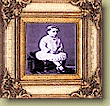Teacher Activity Links:
![]()
Yale Citizens in the Gold Rush Era

Kid's Section

Gold Rush Vocabulary & Glossary
However old or young your students might be, they all need to to know some of the basic vocabulary of the Gold Rush era.
For teachers with more advanced students, a specialized and extended list is included.
Objective:For students to find alternate meanings of the same word in the website and beyond which have historical contexts.
Prescribed Learning Outcomes:
BC Grade 5 English Language Arts: Communicate Ideas and Information (Composing and Creating):
It is expected that students will employ a variety of effective processes and strategies, including the use of electronic technology, to generate, gather, and organize information and ideas.
It is expected that students will:
- identify what they know about topics selected by the class or by groups of students
- formulate questions that are relevant to specific audiences and purposes
- identify and use sources of information, including people, print, audio-visual media, and electronic media
- select and shape information appropriately for specific audiences and purposes
- apply various strategies to generate and shape ideas
It is expected that students will apply their knowledge of the conventions of language and use appropriate vocabulary to talk about them.
- It is expected that students will:
- appraise communications forms critically, using accurate terminology and a knowledge of communications rules and conventions
Group Size: Pairs or small groups of 3 or 4
Procedure
|
|
| Beginner Word List | Professional Word List |
- Have students print out or save the word lists onto a form they can easily manipulate (i.e. word processor)
- Challenge them to look through the web-site to find the words (not all are in this site)
- Once found, have them check the definition of the word with the context it appears in. Do they match? If so great! If not, pair up and talk about a possible meaning.
- Then write a definition that would match the context of the word.
- Get the students to compile their definitions in a personal historical glossary.
Conclusion
- Keep a running record of other historical words in a personal glossary. Include illustrations as necessary. Update the glossary as other units are covered.
- Bulletin Board: Post all glossaries for parents, teachers and other classes to see.
Home | Contents | Tour | People | Collection | Transportation | Just For Kids! | Team
|
Last updated 31 August 1998. This digital collection was produced under contract to the SchoolNet Digital Collections Program, Industry Canada. Produced by Schoolnet Digital Collections Team. |

|